Interview – Oddisee: “I think Hip-Hop needs to grow up.”
Oddisee recently blew the roof off of The Crocodile in front of a highly engaged crowd of loyal fans. One quality that stood out from the show was the depth of this man’s catalog. Sometimes in concerts, there is a noticeable drop in energy when an artist forces a lackluster song on the crowd. With an Oddisee show, there is never a single bad or boring song in the entire set. Every single joint was a treasure that stood on its own, with the crowd often reciting the lyrics along with the DC native. We met up with Oddisee backstage to discuss his career approach, his outlook on hip-hop music, as well as his latest album, The Good Fight.
SMI: You have this wonderful song off the new album called “Belong to the World,” which to me was like a torch song for fierce individuality. In the song, you talk about not belonging to any one group or entity besides yourself. Has that kind of self-possession always been your philosophy, or was it something that you grew into as you got older?
Oddisee: It was something I was born into, but grew to accept only as I got older. My dad is Sudanese and Muslim, my mom is from D.C., African-American and Christian. I initially grew up in a predominantly white area mixed with a heavy influx of immigrants. There were east Africans, Indian, Pakistani. Then I moved to Prince George’s County in Maryland which was, at the time, the most affluent African-American area in America. So, because I hadn’t previously gone to school with mostly blacks, I didn’t fit in at first. I didn’t have the latest Jordans, My father didn’t always get my hair cut every two weeks, my shoes weren’t always clean, I wore hand-me-down clothes etc. . . . . so I got laughed at a lot during those years. In the summers, I would spend time in Sudan where I was exposed to real, true third-world poverty. So, I had a very multicultural upbringing where I felt I didn’t really fit in anywhere. But as I got older, I realized quite the opposite . . . I fit in everywhere.
It was at a certain point in high school where I was looking around at my friends and they were talking about what they were going to do that weekend . . . I think it was some dance with like a football game. And, I remember listening to them talking about all this stuff while I was thinking, “None of this matters. I really don’t care about any of this stuff. I don’t care about your football game. I don’t care about your high school dance. I don’t care what type of new shoes your dad is going to get for you this weekend. I’m most likely not going to know any of you after high school . . . and these are probably going to be your best years.” So, that was when I realized what really mattered to me. It wasn’t what someone else told me what should matter, but what I myself decide to define what matters. But it was only later on when I was able to articulate that for myself. So, now I’m at the point where no matter where I’m at – I’m comfortable. No matter who I happen to be sitting next to – I’m comfortable.
SMI: “Counter Clockwise” was one of the dopest songs released this year.
Oddisee: Thank you.
SMI: The time signature for that song is in 5/4. Was that the intention going in? Or was that unorthodox timing something that organically evolved into the production over time with experimentation?
Oddisee: That was the intention going in. Right from the get go. Most Sudanese music is in 5/4 so I grew up listening to that timing. So, all I did was take a Sudanese rhythm pattern and rapped over it.
SMI: It’s definitely not something you hear every day in rap music. We’ve heard rappers over 3/4 waltz patterns before, but the count on this is almost on some early Tool-poly-rhythm-type steez. Was it a challenge figuring out where the bars should end due to the timing not being a standard 4/4?
Oddisee: I mean it’s all mathematics in the end. I think that as an emcee-producer, I have the advantage of understanding how to rap over anything. Because I’m making the beat, I know where all the rhythms fall. All the intricate little patterns; I’m right there making it, so I know that no matter what the time signature is, I know to follow the hi hat on this beat, the kick drum on that track, or follow the bass line over this beat. I have more insight on just how to rhyme over beats as a producer.
SMI: It’s interesting you say that because, typically in hip-hop music, if we see an artist whose a “producer-rapper,” the general prejudice goes is that person is usually way better at one of those things than the other. Like we’ve seen great producers. who also happen to rap, but are more respected for their beats. Or, there will be an artist like, say a Pharaoh Monch, who also produces and is good at it yet, because he’s Pharaoh Monch he gets a lot more love for his rhyming ability. Is that perception something that you had to overcome when you started out or had to check people on?
Oddisee: It wasn’t something I had overcome – it was just something I ignored. You know, I think it’s very important for Hip-Hop, especially Indie Hip-Hop, to grow up. It really needs to grow up. And, I say that with wholeheartedness. We need to stop looking at our American art form and reducing it to ‘beats and rhymes.’ There is no other genre that reduces itself to merely lyrics and beats. They look at it as songs. And, I only care about songs. I get people all the time wanting to play me their beats; I don’t care. You want to spit a verse to me; I don’t care. I want to hear your songs. I don’t care how well you freestyle – I want to hear your songs. That is the plague in Indie Hip-Hop. There’s so many emcees who think they’re so amazing that they can rhyme over anything and get away with it. There’s so many producers that think as long as their beats knock, it doesn’t matter what the rapper says over their beat. Therefore, everybody gets lazy on one or the other element and it just comes out as ‘beats and rhymes.’ But this is a serious art form. It’s one of the best forms of modern American writing that we have, yet we don’t treat it as such. It’s music, not ‘beats and rhymes’ to me. I’m a hip-hop artist, not some rapper-producer. I’ll correct people on that very, very quickly. I’ll leave to other people to be on that ‘beats and rhymes’ nonsense. I’m all about hip-hop songs. And the more I distanced myself from the “beats-and-rhymes” community, I feel like the better I got. I don’t do the beat ciphers, I don’t do the open mics or the freestyle battles. I only care about making good songs.
SMI: Was there ever an “ah-hah!” moment that occurred for you when all the hard work, the longs hours, the emotional investment, etc – when it became palpable that it was all paying off?
Oddisee: I’ve had a couple of ah-ha moments where it was like, “Oh, I can turn this into something else.” I come from an era of hip-hop that shied away from self-promotion. where the music was supposed to speak for the artist. It kind of demonized any form of self-promotion or commercialization. Then I came to realize that the independent world is no different from the mainstream world, and these lines are superficial and self-imposed. The independent industry doesn’t really run itself any differently. Once I realized that, I said to myself, “Promote yourself. Tell your story.” I didn’t exaggerate, but I did put a magnifying glass on my story. I started telling people that I was Sudanese- American, I started to put my face on my releases, I started to tell everyone about my background and how it influenced my music. Once I put out my story, it made people want to listen to the music more, which is what marketing is supposed to do in the first place. But there was no fallacy, it was very transparent and very organic. So I realized that you can apply those mainstream methods to the indie world and have it be useful. A lot of things changed for me after that.
SMI: It sounds like authenticity is of extreme importance to you. See, a lot of artists attempting the indie route; we’re reading books on how to market ourselves, watching YouTube seminars on how to ‘make it’ in music,etc. It sounds like you just bypassed all of the stratagems and just stuck to being you and working hard. And the success kind of came to you of its own accord, as opposed to it being a manufactured thing. Am I correct in assuming that?
Oddisee: Well, I definitely always understood formulas and what formulas worked for me, but I never forced anything. There were plenty of times when I could have, but I never forced anything. I’ve always gone with what was comfortable for me, sometimes to my own detriment.
SMI: Was there ever a time when you said ‘no’ to an opportunity, to your own detriment? Where you look back on it now and are like, “Man, maybe I should have done that or said ‘yes.’
Oddisee: I’ve never said ‘no,’ but there have been times when I didn’t show the enthusiasm that I should have. Plenty of times. Kanye’s A&R had hit me up for beats during’the production period for the Graduation album. But I had spent so much time over-scrutinizing the beats, that I missed the deadline. I tried to hit his A&R up later, but he never responded. I assume because he wrote me off as a flake and never returned my calls because I had missed the deadline. Those stories happen to me all the time. I got reached out by Dre’s people sometime last year. They said, ” We are working on several projects. We’ve been following your career for some time now and we’d like some beats.” But I was so busy with touring that I didn’t make it a priority. A year later and the Compton album comes out – now I know that’s the project they were talking about. This happens to me constantly. Where I get hit up by a lot of people whenever I’m in the middle of something. I’ll have so much on my plate that I just don’t prioritize it. Then that something blows up. I mean I don’t really care. I’m fine. But I look at it sometimes like “Maybe I should have made time for that.”
SMI: On the song, “Meant It When I Said It” and the second verse of “Want Something Done” – what I got from those songs is that with your recent success, you’ve been getting hit up by a lot of people wanting things from you, as though you can put them on or help their career. Is that something that’s been an issue as of late as opposed to four or five years ago?
Oddisee: Quite the opposite. Those songs are talking about situations that happened quite awhile ago. So, it’s more hindsight if anything.
SMI: So it’s more historical then.
Oddisee: Yeah. A lot those things have been cut out. A lot of stuff gets siphoned through my manager now. Any of my peers that I tried to come up with, but for some reason our careers ended up going in different directions and who are no longer in communication with me – they’ve all been cut out. I’m cancer free (laughs).
SMI: Ok! We’ll move on then!
Oddisee: (Laughs)
SMI: You moved to Brooklyn some time ago is that correct?
Oddisee: Yes.
SMI: Did you feel at the time you had hit a ceiling of ubiquity in DC, and so moving to a larger market was necessary to get to the next plateau in your career? Or, was it that you just wanted a change of scenery?
Oddisee: Change of scenery. I moved to Brooklyn to be closer to the industry that surrounded my industry. The move to New York wasn’t some romantic notion to be a rapper or collaborate with other rappers. I’ve done none of that. I moved there . . . for this actually. For what you and I are doing right now. I moved there to be closer to the journalists, the graphic designers, the videographers, the advertising agencies, the licensing companies. It’s a lot easier and it’s been worth it just for the amount of interviews and photo shoots I’ve done in my own place.
SMI: How instrumental was local support from fans and musicians in building your buzz? Or, was it the intention to try to go national right from jump?
Oddisee: Oh no, I started off locally. I started off doing open mics, meeting a lot of my peers at that time. Then we’d go to other open mics. I started passing out beat cds. Word started spreading and we’re building contacts. Me and my buddies would go drive – for four hours – to an open mic to perform for free, then drive back to perform at another show for free. Perform for maybe five minutes, ten minutes.
SMI: I love stories like that. So, let me get this straight: you and your dudes would drive four hours to do ten minutes of stage time for free?
Oddisee: Oh yeah, I’d perform then pass out beat cds after that. But, I did have a little hustle back then. I’d give beats to the biggest artist I had access to for free, but I would tell them, “If anyone ask, tell them I charged you for this beat.” So off of that, I started getting hit up by artists who bought beats from me. So I started making money from music very quickly
SMI: You’re on a deserted island. You can only take three pieces of gear with you to make music. What are they?
Oddisee: A computer, a microphone and audio interface of some sort. That’s all I have to use anyway so . . .
SMI: No mpc or sampler?
Oddisee: I don’t use samplers. I haven’t used a sampler for ten years. I’m not a gear-head or a collector. None of that stuff. I use pro tools for all my productions.
SMI: When you’re an indie artist starting out, and you don’t have serious funds to invest, plus you’ve got a day job (or two) and other commitments, you’re trying to make rent while trying to do music. With all of that going on, how do you build a team around you? Or does the team come to you as you progress?
Oddisee: What do you mean by ‘team?’
SMI: A team to juggle all the different facets of building a brand – between the recording, mastering, social media marketing, promotions, making videos – there’s so much to do that it’s really hard to do it as a single individual. Did you build a team around you to help, or did they just gravitate around you because they like your music?
Oddisee: More of the latter, actually. Some good advice I can give is this: the better you are at what you do, the easier it is to do everything else. More people are calling you then you’re calling them. But never undervalue the people that are calling you. People will let you know if you’re good or not, and opportunities happen from that. It happens very organically. And it just grows and grows. If you’re super dope, people will want to shoot videos for you for free.I got guys wanting to do promo photos for me for free. I got people who offer me mixing for free, dudes who want to show me their mastering skills for free. Clothing companies who offer me clothes for free. So, you don’t really have to worry about building a team if you’re really good. If you need work as an artist – the more you need to call on others to help you.
SMI: What are some non hip-hop influences you may have?
Oddisee: Feist has been a very big influence on me. Marvin Gaye is also a big influence. Fleetwood Mac, Carly Simon, Fleet Foxes.
SMI: Seems like a lot of ’70s pop influence in there. Feist is also a favorite of mine. Her Let It Die album was fire.
Oddisee: That’s because she is a part of the Broken Social Scene. Up in Canada, those guys are dope. I get a lot of inspiration off of their soundscapes: how they mix and EQ and the dynamics, the choral harmonies in the background.
SMI: YouTube is now the number one platform for music discovery. With that said, do you feel traditional radio is still a viable platform for music or emerging artists?
Oddisee: I feel that I’m the wrong person to ask that question to. Radio has never been a factor in my career. I’m just not that type of artist. College radio has played me, but not the type of mainstream radio you’re talking about. I’ve never cared about radio, to be honest.
SMI: Do you feel European audiences are a little more appreciative of the music than American audiences, due to us being in your backyard so we’re just overexposed to the culture more? Do they receive you a little more enthusiastically?
Oddisee: No. It’s just different. I think European audiences get a little too much credit and I think we undermine the appreciation we receive from our fan base in America. I sell most of my records here in the States so they are tuning in more to what I’m saying during shows, whereas the European audience are just vibing off of how I sound. Americans are really listening to the lyrics, so they are not moving around as much. Whereas the European fans are dancing more and will comment on things like ‘I like how your live set makes me feel,’ ‘The vibes are great.’ Where my American fans are commenting more like, ‘I liked this lyric here,’ or ‘What you said there really hit me.’
SMI: Oddisee, it’s been a pleasure.
Oddisee: Absolutely. Thanks for having me.
You can purchase Oddisee’s latest album, The Good Fight, here.

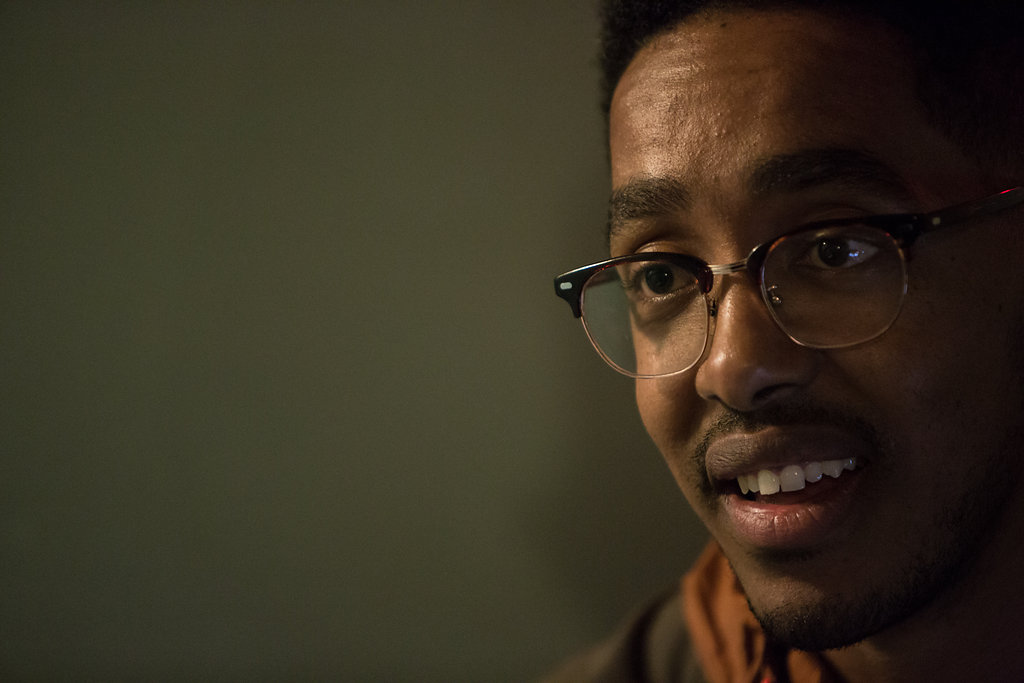
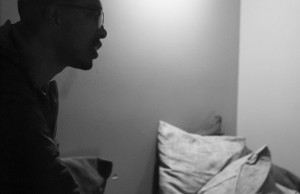
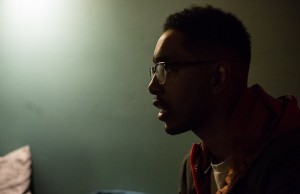
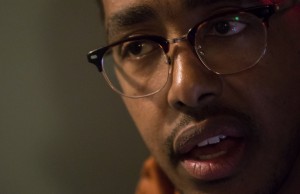

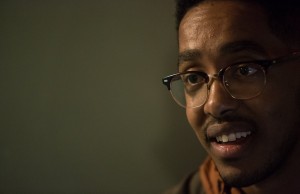

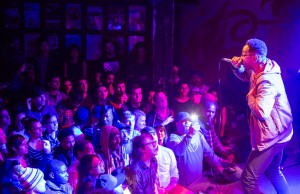
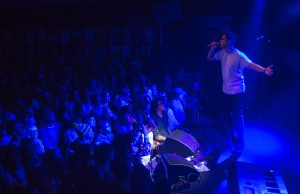
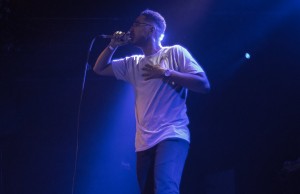

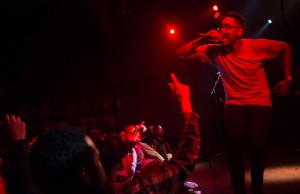
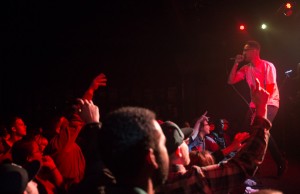





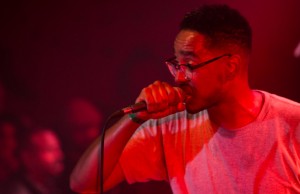
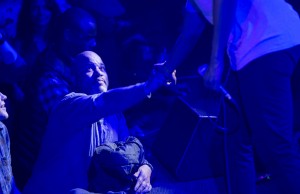
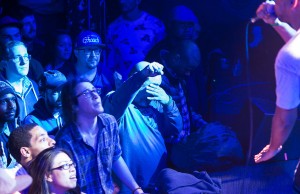

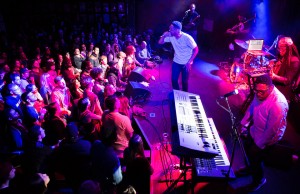
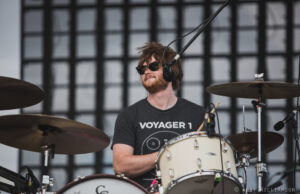
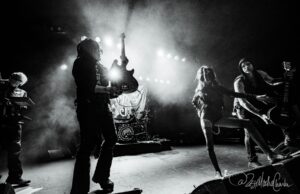
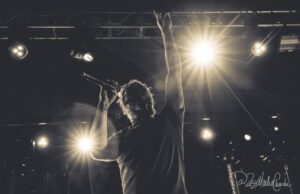

0 comments